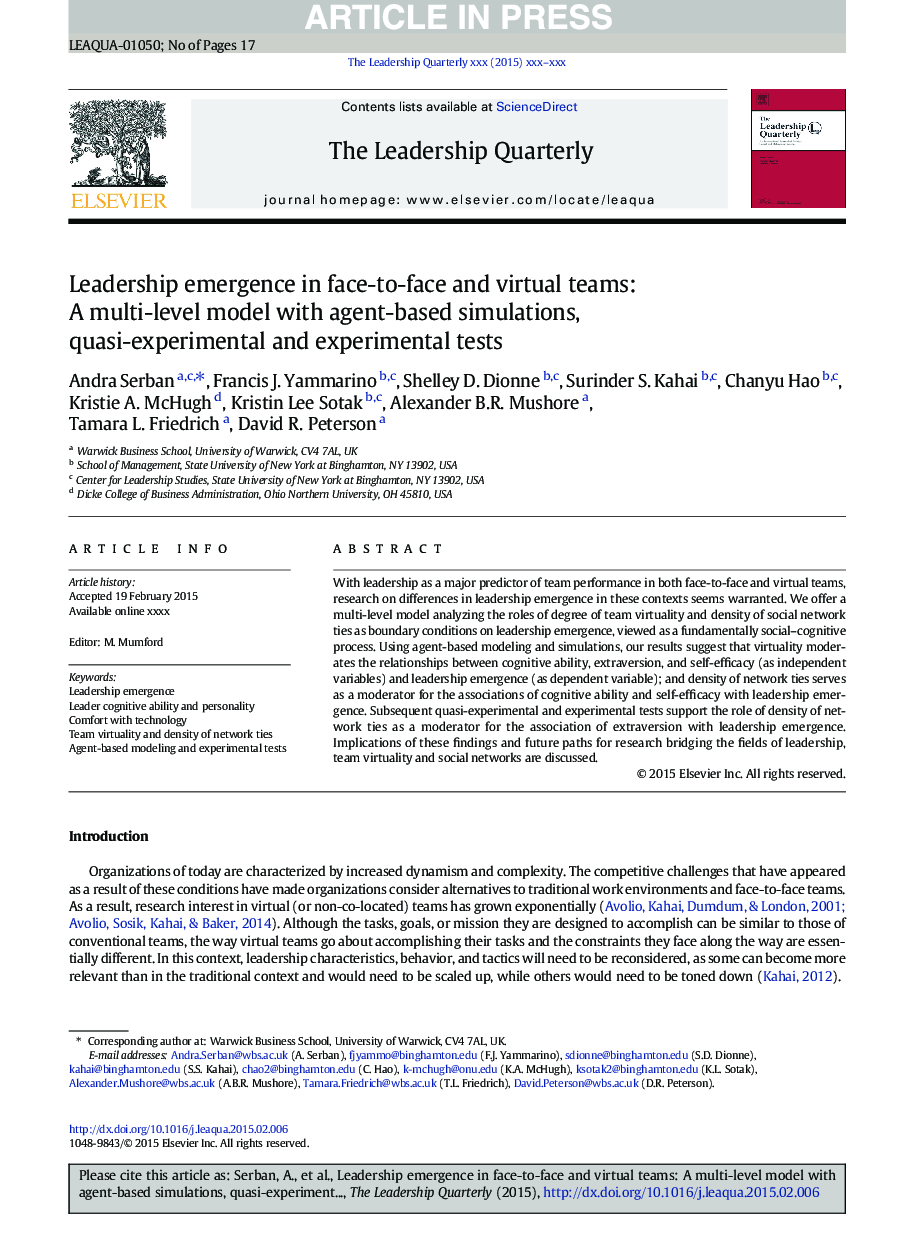| Article ID | Journal | Published Year | Pages | File Type |
|---|---|---|---|---|
| 10439490 | The Leadership Quarterly | 2015 | 17 Pages |
Abstract
With leadership as a major predictor of team performance in both face-to-face and virtual teams, research on differences in leadership emergence in these contexts seems warranted. We offer a multi-level model analyzing the roles of degree of team virtuality and density of social network ties as boundary conditions on leadership emergence, viewed as a fundamentally social-cognitive process. Using agent-based modeling and simulations, our results suggest that virtuality moderates the relationships between cognitive ability, extraversion, and self-efficacy (as independent variables) and leadership emergence (as dependent variable); and density of network ties serves as a moderator for the associations of cognitive ability and self-efficacy with leadership emergence. Subsequent quasi-experimental and experimental tests support the role of density of network ties as a moderator for the association of extraversion with leadership emergence. Implications of these findings and future paths for research bridging the fields of leadership, team virtuality and social networks are discussed.
Keywords
Related Topics
Social Sciences and Humanities
Business, Management and Accounting
Business and International Management
Authors
Andra Serban, Francis J. Yammarino, Shelley D. Dionne, Surinder S. Kahai, Chanyu Hao, Kristie A. McHugh, Kristin Lee Sotak, Alexander B.R. Mushore, Tamara L. Friedrich, David R. Peterson,
